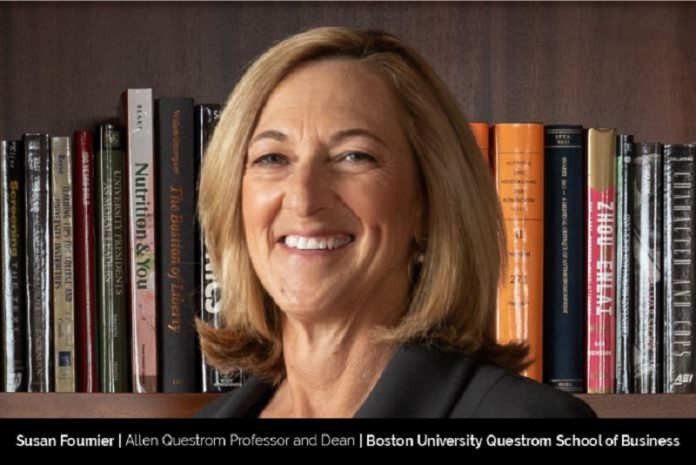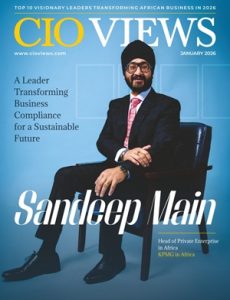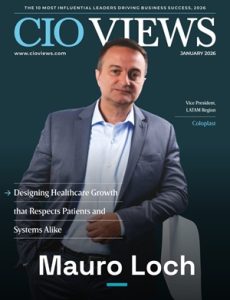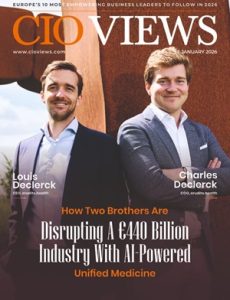The business leaders of the future will need an interdisciplinary mindset and cross-cultural competencies to thrive in the global workplace.
As a first-generation college student who went on to become Questrom’s first woman dean and first academic dean in over 40 years, Susan Fournier has the benefit of an inside perspective, a status that has given her meaningful insights into building BU Questrom into one of the top business schools in the country.
An early love of teaching
From teaching stuffed animals in her parent’s basement to becoming a business professor at one of the world’s premier business schools, the love of teaching was ingrained in Susan from a very early age.
With the belief that a business school professor must understand the world of business first, Susan held upper-level management positions in consumer durables, market research, and advertising before returning to get her doctoral degree. She built a thriving consulting business upon returning to academia. “I loved that, as a business professor, you could stay connected to business and get inspiration for your research and teaching at the same time. I had a thriving consulting business throughout my career as a professor. A mutually-reinforcing system.” she says.
Susan joined the faculty at Boston University Questrom School of Business in 2005 as an Associate Professor of Marketing and Dean’s Research Fellow. By 2013, she was named Questrom Professor in Management and had been an influential member of the community in her roles as an educator, researcher, and administrator.
An advocate for “research that matters”
“When I joined, we were not yet an internationally recognized academic research institution,” she says. “A lot of faculty weren’t vested in the research enterprise, which is fundamentally at the heart of how an institution like ours creates value.”
As an award-winning researcher with an in-depth knowledge of what it takes to produce “research that matters,” bring that knowledge into the classroom, and translate academic research for the most significant impact on practice, Susan took on President Brown’s mission of supporting research that matters and “research with impact”.
Supporting faculty on the teaching track
A celebrated professor who designed and delivered one of Questrom’s Top 10 MBA electives, Susan served as Senior Associate Dean of Faculty & Research in 2015 and was a prior Faculty Director of the Questrom MBA and Doctoral programs.
She led strategic efforts to hire 55 tenure-track research faculty and 18 non-tenure-track faculty and brought a wealth of personal experience in academia, with over 24 years in the Undergrad, MBA, and Executive classrooms of Harvard Business School, Tuck School of Business at Dartmouth College, and Questrom.
“Every person we hired was stronger than the last, and that is just an amazing opportunity for growth and change,” she says. “To be able to hire 55 tenure track faculty in a system that grants tenure gives you an unprecedented opportunity to realign with a dramatically changing marketplace.”
Susan advanced the value of interdisciplinary interfaces by promoting cross-departmental research, new cross-disciplinary programs, faculty engagement in interdisciplinary institutes. Recognizing the value of a robust portfolio of faculty, she also introduced new leadership roles for lecturers and other non-tenure-track faculty.
Making BU Questrom one of the top business schools
Over its 105-year history, the BU Questrom School of Business has introduced five versions of the MBA to address unique segments of business learners, and continues to expand its portfolio, utilizing new technologies to reach the global online segment.
“Our portfolio strategy comprised a multi-year process that helped us recalibrate degrees that have been around 50 years or more, aligning them with what leaders need today, level setting in today’s environment. This led to the launch of our online MBA,” says Susan.
When designing the online MBA, the flagship degree for business education, BU Questrom started with a clean slate and focused on bigger interdisciplinary themes in redefining the learning outcomes delivered by the degree.
“We focused on the idea that yesterday’s view of business education is very disciplinary, very siloed, and very focused on a given value-creating function like marketing, or finance, or supply chain, or operations,” Susan explains. “We stepped back and thought about the broader capabilities leaders need to build, and designed the program with those in mind, cutting across all those silos.”
“It’s a different way of thinking that focuses on problems, with the recognition that, as a leader or business manager, you don’t come upon problems in a silo, you come upon problems that cut across silos, like growing the business, or stemming customer decline,” says Susan. “That’s not a marketing problem. It’s not a strategy problem. It’s a business problem.”
As an example, one of the six modules is Integrated Risk Management. If a student wanted to learn about that in existing programs, they would have to take a number of electives and put it all together themselves.
“Teaching in the risk module are marketing professors, finance professors, operations professors thinking about variability in production capacity and processes. Accounting professors think about risk management from the perspective of compliance standards and reporting,” she explains.
With a passion for marketing and branding, Susan sees her job as building the reputation and brand of the Boston University Questrom School of Business, as embodied in the stakeholder behaviors, quality of students, faculty, and research.
“You can’t have a strong brand without a laser focus on relevance and differentiation, and that’s what I do every day. My branding research and career have been invaluable in providing frameworks and perspectives that really help guide us forward,” she says.
Designing a holistic business education
Another way in which BU Questrom is redefining business education in the microcosm of the online MBA is in terms of innovation and thinking holistically about the leadership styles required for innovation, the skill sets that enable it, and the marketing prowess required for identifying new unmet needs and segments to address with new products.
Another way in which the online MBA takes a holistic approach is in shaping social impact, which includes themes as varied as corporate sustainability, sustainable energy, social impact investing, ESG measurement, diversity and inclusion, and stimulating investments to solve grand challenges in the world.
These are all bigger themes where BU – a university with 17 schools and colleges – can powerfully come together to solve grand problems and challenges informed by partnerships.
The Questrom School of Business also aims to be distinctive in digital business while interfacing with the parallel world at the university level. “Our scholarly and academic focus on digital business plays out in digital health, FinTech, in the economics of platform markets, digital marketing, and addressability,” says Susan.
Another area of focus is on education informed by research, another way that the academic research enterprise has an “impact” that goes back into the classroom. As Susan says, why have an academic research institution if there are no direct feeds between partnerships and collaboration with their alumni, corporate partners, industries, and internally with other schools and professionals.
“It is through those partnerships that we cultivate hands-on projects, speakers for our classrooms, members of advisory councils, and committees that help us make our programs relevant and resonant with the changing world of work,” she says. “These ideas are penned inside our strategic plan called Questrom 2030; these are the pillars of strategic priority that guide our investments as we go forward.”
Interfacing with BU for mutual collaboration
Boston University is also building a new 17-story unit called the Faculty of Computing and Data Science. “This is an area with which we claim a great connection. Our faculty hiring in the areas of digital business and data science has been tremendous,” Susan explains.
“This area didn’t even exist when I got my doctoral degree, so the sea change is mind-numbing.”
BU has also been instrumental in driving student quality into the business school. “It is remarkable to note the increase in our reputation and quality, not just in the faculty, but also in the students. You can see that most markedly in the undergraduate program, where we’ve steadily knocked it out of the park in terms of incoming student quality in terms of SAT scores, high school GPA, and selectivity in admissions,” she says.
As the Questrom School of Business advances its goals around Social Impact as an area of support, growth, and distinction, this also opens significant opportunities for collaboration with “big BU.” “Boston University has an interdisciplinary Institute for Sustainability Research and that enables and empowers us to connect with and leverage the university. Through ISR have access to faculty from Earth and environment, r engineering, the College of Arts and Science, data science, and computer science,” says Susan. “we are stronger together and, again, problems do not come in little academic boxes. They are interdisciplinary.”
Susan also describes Innovate@U as a thriving environment for students, entrepreneurship, and professional development. “BU Questrom plays a strong role in collaborative governance and leadership in those programs,” she says. “We’re not just participants but are very active, either in an advisory capacity or administering programs. We administer the Innovate@ BU initiative.”
Navigating the evolution of work during the pandemic
As Dean, Susan finds every day filled with challenges, with a mandate for innovate or die in a world of increasing competition and a continual search for excellence.
“Career-wise, there’s nothing like a global pandemic to put a few challenges on the table, take a very comfortable faculty used to teaching the way we have always taught, and force us to innovate with new technological tools, and grow pedagogically with different ways to think about what we do and how we do it,” she says.
It’s made her question what it means to go to work anymore, how to think about a distributed workforce, how to maximize partially remote teams, especially as a historically residential campus. “How do we redefine the residential academic research university, now that the genie’s out of the bottle, the world has changed, and it’s not likely we’ll go back?” she asks.
Susan admits she has found the softer sides of culture very challenging, especially when one can deliver a class remotely and not necessarily partake in the vibrant residential community that was always at the heart of all they do.
“The future of work, the evolution of work, and the community that binds us all is a monumental challenge, both on the faculty side and the staff side. How do we keep us from becoming a transactional culture and how do we become a communal culture again, with new norms that we can embrace,” she says.
Top business schools face immense pressure to build their talent and improve their programs, all of which costs money. Susan’s final challenge is to continue to fund the School’s appetite for research and innovation through new revenue sources.
“We need to continuously source new funds, new programs, and we are judicious in this activity,” she says. “We have a business analytics masters degree, a very powerfully-differentiated Math Finance degree, a social impact MBA, and a Health Sector MBA. Fund raising behind ideas that can have traction among stakeholders is key.”
A passion for designing MBA programs
As a former professor, the MBA is Susan’s favorite space. “I particularly love the part-time MBA, because that’s how I got here,” she recalls. As a guest lecturer in the part-time program, she was invited to teach one of the case studies she wrote at Harvard to the night school.
“I was very skeptical –how could these folks work all day and prepare for class and participate until 9 pm? I was amazed. It was the best class I ever had in my life. These students at BU Questrom wanted to be here. They were here for a reason, and boy, did it show,” she says. “I’m extremely excited watching the continued evolution of our MBA programs.”
As an example, Susan cites the online MBA, which she is incredibly proud to have been part of. “That was a pure culture change for this university and for the school,” she says. “I would also say the social impact MBA has so much potential.”
With one of the oldest nonprofit MBAs in the country, this focus has evolved into a broader concern about the broader umbrella of social impact. BU Questrom has started building out a lot of the pieces under that umbrella, from clean energy to corporate sustainability to nonprofit management, and social impact investing.
“Nothing will change if we can’t guide funds to the programs and products that we need to address society’s grand challenges, like climate change, or carbon neutralization, or net-zero emissions,” says Susan.
She defines the social impact MBA as a program that has tremendous growth potential, from an ethics thesis and a recalibration of the role of business in society, to the areas where business is a force for innovation and good.
BU Questrom also has a digital tech MBA, taught by thought leaders in digital tech.
A student-first approach
As an academic research institution, BU Questrom is all about the students and pursues a students-first approach to education.
“We’re in that tier of large schools committed to research and teaching. Sadly, you can see tradeoffs in these missions, but not here,” says Susan. “Here it is all about the students and excellence in the classroom – the attention, the concern, and the degree to which we are guided and driven by students is palpable and noteworthy.”
BU Questrom’s mission statement calls for using the power of business to create value for the world. “Business as a force for good,” says Susan. “Building business skills such that all organizations can operate as drivers for change.”
BU Questrom highly values its collaborative community built on respect and appreciation for everyone’s contributions. They recently appointed their first-ever Associate Dean for Diversity and Inclusion on the leadership team.
“We have 160 full-time faculty members and we’re all about teaming. For better or for worse, you learn how to work on those teams. It’s amazing to operate as collaborative spirits, and that culture bleeds into the students,” says Susan.
Another fundamental value of BU Questrom is the emphasis on supporting first-generation students. The leadership team is disproportionately first-generation, including Susan, who is part of the Questrom diversity and inclusion story.
“How can you be student-first, if that hasn’t been your career?” she asks. “There is a commitment from the top. Our strategic plan has six priority areas. The sixth area is about culture. There is formalization around our collective commitment to articulating what we believe, in our incentives and reward structures. We formally encourage the things we believe in.”
Embracing risk over tradition
BU Questrom’s leadership team is also remarkable for being more risk-embracing than others and in leaving the school better than when they got there.
“Some of the legacy we look to leave is to be willing to think differently, to engage bigger ideas, and to take risks,” says Susan. “The online MBA priced at $24,000 is a great example of that. No one else has done that while also supporting a robust full- and part-time MBA. We did and we’re very successful at it.”
As a global business school, Questrom ranks in the top five in the attraction of international students. “It’s remarkable when I travel abroad to Korea and Indonesia. People know BU in the middle of Bangladesh,” says Susan.
BU also has a school of global policy and international relations and is working on ideas for Day One Ready Global Leaders who need to understand the global economy and operation of multinationals in the context of politics, how that affects regulations, as well as the softer skills of cross-cultural competency.
“It’s an exciting time to be in education because we have the ability to change the course of human events, to really influence the next generation of leaders,” says Susan. “It’s great to be on a team that embraces that rather than hides from it. It has been inspiring and motivating to be part of our amazing team.”
In turn, her team at BU Questrom believes that Susan’s courage has gotten them through the best and the worst of times and that she should be lauded for it.





